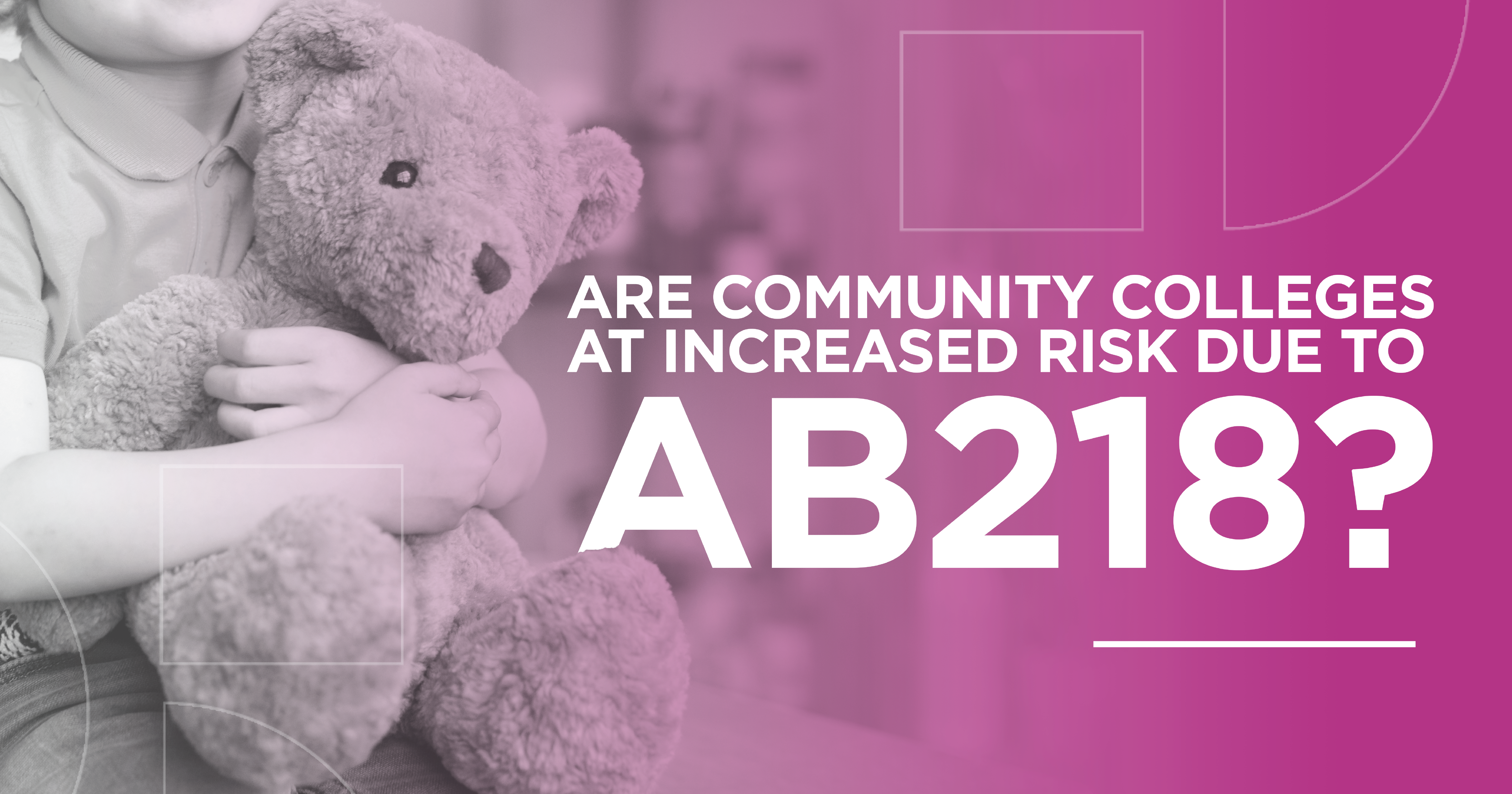
The California Child Victims Act, otherwise known as AB 218, is landmark legislation passed in the Golden State that significantly extends the statute of limitations on minor sexual abuse and molestation claims and triples the amount of damages that can be paid out to victims if an attempted cover-up was involved.
The statute of limitations (the period of time in which a claim can be filed against a defendant) has been extended:
“Enough holes have been punched in the statute of limitations that time is never really going to be on your side,” according to Jerry Johnson, Risk Manager at Contra Costa Community College. “From now until the end of time, we need to be cautious, cognizant, aware of potential liability for suits involving the sexual abuse of minors.”
But California community colleges don’t need to worry, right? After all, everyone on a community college campus is an adult.
Schools Excess Liability Fund (SELF) would argue otherwise. The not-for-profit, insurance pooling group for California public schools and community colleges, assesses risk posed to its members and believes that this legislation has increased liability significantly to the community college system. Underage individuals are increasingly on community college campuses in dual/concurrent enrollment programs, childcare facilities, or just visiting the campus for any number of reasons.
More importantly, community colleges must be aware that when it comes to a civil case, the plaintiff needs to demonstrate simply a “preponderance of evidence” that a community college did not do its due diligence to protect the victim against sexual abuse and molestation. A “preponderance of evidence” according to Johnson, is just a “maybe, plus one,” -- far from the “beyond a reasonable doubt” standard needed in criminal trials.
According to a study conducted by SELF, the average damages paid out per victim of a sexual assault and/or molestation charge is $1.5 million. In the case of a perpetrator who has assaulted multiple victims, this can get very expensive, very quickly.
However, there are mitigation tactics that can significantly reduce the risk for institutions of higher learning. To learn about some simple but effective policies and procedures that your college can implement, watch this video “Is Your College Ready for the Effects of AB218?” from the Team 25th Extra Hour Webinar Series.